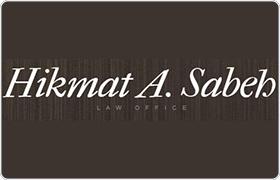 Township Of Washington Foreclosure Lawyers, New Jersey
Township Of Washington Foreclosure Lawyers, New Jersey
Sponsored Law Firm
-
 x
x

Click For More Info:
-
Law Office of Hikmat A. Sabeh
26 Park Street Suite 2076 Montclair, NJ 07042» view mapReal Estate Law Effective Legal Advice
We guarantee effective and aggressive representation. Our reputation and history of successful litigation speaks for itself.
800-881-0241
Warning! No lawyers found in this specified area.
Lawyers
1-0 of 0 matches



 Hikmat A. Sabeh Montclair, NJ
Hikmat A. Sabeh Montclair, NJ Practice AreasExpertise
Practice AreasExpertise